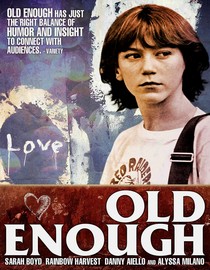 One of the many challenges a writer faces is how to know when something is finished. Does the ending hit that precise, elusive note? Does the collection need one more story to achieve harmony between the others? Does this paragraph need more tinkering, or less? It’s a beautiful thing to behold when an author nails it. Marisa Silver’s Alone With You (Simon & Schuster), eight stories and 164 pages, is as satisfying as the perfect meal – not a morsel more than you desire, each bite bright with the imaginative intent of the author, each element perfectly balanced in the way they enhance and better one another.
One of the many challenges a writer faces is how to know when something is finished. Does the ending hit that precise, elusive note? Does the collection need one more story to achieve harmony between the others? Does this paragraph need more tinkering, or less? It’s a beautiful thing to behold when an author nails it. Marisa Silver’s Alone With You (Simon & Schuster), eight stories and 164 pages, is as satisfying as the perfect meal – not a morsel more than you desire, each bite bright with the imaginative intent of the author, each element perfectly balanced in the way they enhance and better one another.
 Marisa Silver began her career in Hollywood as a writer and film director. During the past decade, she has impressed readers and critics with her stories and novels, including No Direction Home and The God of War, the latter a finalist for the Los Angeles Times Book Prize. Babe in Paradise, her first collection of stories, received a Notable Book nod from the New York Times and won Best Book of the Year from her home city paper, the Los Angeles Times. In this latest book, Silver navigates the inner turmoil of men and women who are often adrift in their own psyches, but does so with a sure, precise hand. One nearly forgets how difficult it is to make a piece of writing appear effortless, just right.
Marisa Silver began her career in Hollywood as a writer and film director. During the past decade, she has impressed readers and critics with her stories and novels, including No Direction Home and The God of War, the latter a finalist for the Los Angeles Times Book Prize. Babe in Paradise, her first collection of stories, received a Notable Book nod from the New York Times and won Best Book of the Year from her home city paper, the Los Angeles Times. In this latest book, Silver navigates the inner turmoil of men and women who are often adrift in their own psyches, but does so with a sure, precise hand. One nearly forgets how difficult it is to make a piece of writing appear effortless, just right.

Marisa Silver, by Bader Howar
Alone With You is populated with characters free of gimmickry, the fantastic or grotesque. These people have lives no more dramatic or horrible than your own, but Silver peels back the layers to the crises within the human heart – a woman in a precarious marriage, convinced that her dog has tried to kill itself; a young aide at a V.A. hospital who takes out her frustrations on a soldier in her care; an immigrant construction worker confronted by the distance between him and his teenaged son. Silver’s writing feels natural, anecdotal at times, and she has the assurance not to overpopulate the present with long description. Rather, she gives the reader an understanding of her characters’ pasts, slipping in details of relationships complicated by the passage of time.
In the story “Pond,” Julia and Burton, parents of a mentally disabled young woman named Martha, grapple with their daughter’s pregnancy. Martha can barely comprehend the physical changes her body undergoes, let alone the attendant responsibilities of parenthood. Burton, absent from much of Martha’s daily care, carries around “every key he had ever owned on his chain.” His wife finds this habit “needlessly space- and time-consuming.” But Silver pushes it further by adding that Julia’s “frustration was underscored by the knowledge that Burton had secrets he did not want to let go of.” Julia understands that her husband will always maintain a cache of privacy to which she does not hold the key. It’s a realization that colors Julia’s later conclusion that, “whatever love was, it was also the opposite.” Many of Silver’s characters possess this acceptance of (though not quite resignation to) the hand they’ve been dealt, as though they stand holding up circumstance to a hard, clear light, examining every facet to fully appreciate the implications, the small victories and quiet horror of their lives.
 In “Three Girls,” the sisters of the title return home from school early because of a snowstorm. The story unfolds through the eyes of Connie, the middle daughter. When a family shows up at their door later that evening, needing to call a tow truck for their snow-bound car, the strangers’ growing unease around the girls’ parents casts into relief an undercurrent of alcoholism and ruin. Silver plants misgiving in the very first scene, as the three girls prepare for school, devoid of any parental involvement. By the time Connie’s mother insists on the stranded family waiting in the living room while help arrives, these wisps of foreboding have gathered into full-blown alarm. Somewhere in the back of the reader’s mind hovers the image of Connie sprinkling sugar over her younger sister Paula’s Cheerios “so that she wouldn’t whine, her complaints threading themselves dangerously up the stairs.” That innocuous line sounds a warning note for the full scope of parental childishness that Silver explores through the daughters.
In “Three Girls,” the sisters of the title return home from school early because of a snowstorm. The story unfolds through the eyes of Connie, the middle daughter. When a family shows up at their door later that evening, needing to call a tow truck for their snow-bound car, the strangers’ growing unease around the girls’ parents casts into relief an undercurrent of alcoholism and ruin. Silver plants misgiving in the very first scene, as the three girls prepare for school, devoid of any parental involvement. By the time Connie’s mother insists on the stranded family waiting in the living room while help arrives, these wisps of foreboding have gathered into full-blown alarm. Somewhere in the back of the reader’s mind hovers the image of Connie sprinkling sugar over her younger sister Paula’s Cheerios “so that she wouldn’t whine, her complaints threading themselves dangerously up the stairs.” That innocuous line sounds a warning note for the full scope of parental childishness that Silver explores through the daughters.
The absence of certain facts – a family’s last name, or where a roommate’s money comes from – highlights the gaps of knowledge that characterize even the most intimate relationships. What Silver does superbly well is draw forth the perfect detail. A tiny observation cuts to the surface like an iceberg’s tip, intimating a world
of hurt or doubt below. A young woman’s observation of arthritis curling her grandmother’s hands sums up the precariousness of their life together, “it wouldn’t be long before she could no longer work a sewing machine or hold needle and thread. What then?” Vivian, who transcribes adoption interviews in the story, “Temporary,” spends her days “winding the tape recorder back and forth in order to see if a husband had said that he loved children or loathed them, or if a wife had called herself infertile or infantile.” It’s a small detail, but one that introduces misgiving about Vivian’s later obsession with a set of prospective parents, convinced that the husband doesn’t want a child at all.
Silver can evoke an entire childhood in a single brief sentence, “Tomasz’s father was a square, unsmiling man who saw the world as a giant drill might see it: something hard to bore through.” She trusts her reader to feel the full weight of what this means to Tomasz. Even though each story is grounded in discrete incidents, she gives characters both past and future, an open-endedness that allows them to exist after the story leaves off. In the way that an old girlfriend or elementary school teacher might enter one’s thoughts after years of not thinking of them, so too Silver’s characters come to mind at unexpected moments – seeing a woman walk her dog, or a gardener resting for a moment on the handle of his  rake. Silver’s characters aren’t chatty, and when they do speak, the dialogue has a fraught and layered quality, especially between husbands and wives, where statement and intent weave and feint like prizefighters. Take this conversation from “Leap” in which Colin and Sheila’s marriage is mirrored in their dog, Patsy, who has barely survived a jump into the river,
rake. Silver’s characters aren’t chatty, and when they do speak, the dialogue has a fraught and layered quality, especially between husbands and wives, where statement and intent weave and feint like prizefighters. Take this conversation from “Leap” in which Colin and Sheila’s marriage is mirrored in their dog, Patsy, who has barely survived a jump into the river,
“We give Patsy her food,” [Sheila] said. “She doesn’t have to think about hunting and gathering. Her survival is assured.”
“So?”
“She’s got time on her hands. She thinks about what her purpose is in life. She comes up empty.”
It’s unclear whether Sheila is speaking about herself or the dog, or perhaps what is clear is that she’s concerned for Patsy and herself, that Colin might leave both of them. Silver’s precision about the vagaries of human interaction lets the reader hold them up to the light in the same way the characters in Alone With You keep coming back to doubt, abandonment, uncertainty, and that persistent, haunting question, What then?
Further Links and Reading:

- Read Marisa Silver’s story “Temporary,” included in the collection Alone With You, from its debut in The New Yorker on September 28, 2009.
- Check out Old Enough, a coming-of-age movie, written and directed by Silver. Old Enough also happens to be Alyssa Milano’s feature film debut.
- Listen to conversation in which Marisa Silver tells a joke and describes her attendance at an exorcism on “The Dinner Party Download” from American Public Media.
- Read an Ecotone interview with Marisa Silver, in which she discusses exactly how she knows when she’s arrived at the end of a story, and describes (at least part of) what drives her to write in this way. Here’s an excerpt from her conversation with Joanna Mulder: “I’m interested in all the mistakes we make on our way to trying to get what it is we think we want. I’m interested in the ways we deceive ourselves and in the mythologies we create about ourselves and our lives that help us to explain our actions to ourselves. I am sympathetic to humans in general. It’s hard to live.”






